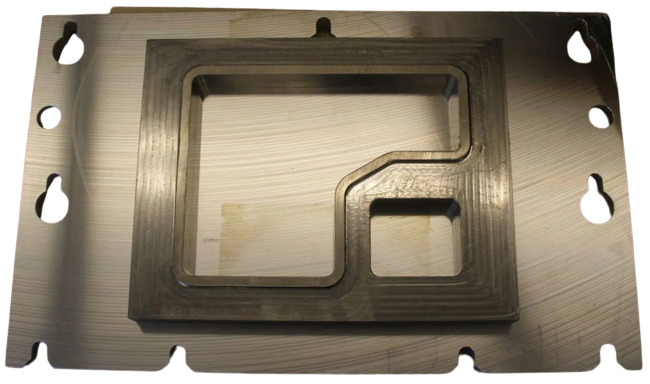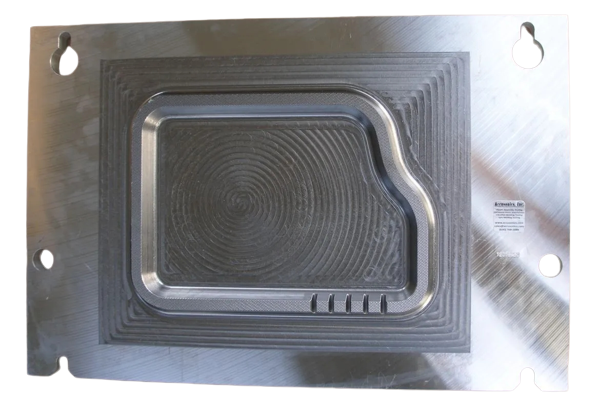Ultrasonic Horns
Spin Welding
Vibration Weld Tooling
Holding Fixtures
Accusonics manufactures ultrasonic horns that are designed and manufactured to resonate at the correct frequency for many different machines. These typical frequencies are 15, 20, 25, 28, 30, 35, or 40 kHz (as well as some other frequencies), which the most common is 20kHz. However, since every application is unique, custom manufacturing assures that all special requirements are accommodated. Horns are acoustic devices and are designed to resonate at the frequency of the ultrasonic machine you are using. Therefore, the shape and length are extremely important, so they resonate correctly.
Most common horn materials are Aluminum, Titanium, and Steel..
- Aluminum is the softest of all the materials. It can be chrome plated, or anodized to help decrease marking and increase wear resistance. It is the least cost of the 3 different types of materials, but will also wear faster. It is also the lightest of the materials.
- Titanium wears better than the aluminum. It is normally the choice for longer running applications, and where more amplitude is needed to weld plastics that require more zip. It has the best elasticity of the 3 materials.
- Steel is hardened for wear resistance. It is used widely where the plastic has a lot of filler such as glass or talc in it, or driving inserts into plastic bosses. Steel does have limitations on the amount of amplitude it handle, so most steel horns are smaller horns with less gain.
Round Horns
Round, slotted, shotty pad, steel inserting horns, contoured, staking, replaceable tips and more.



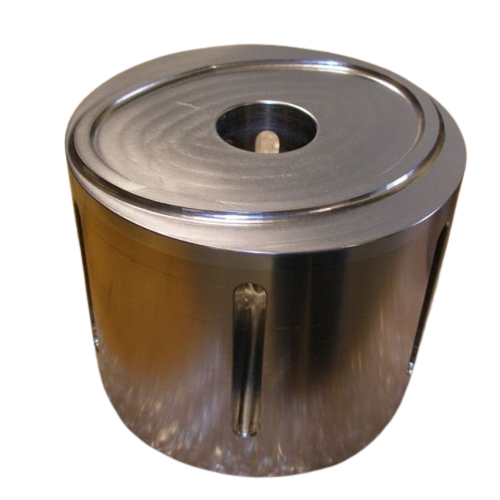

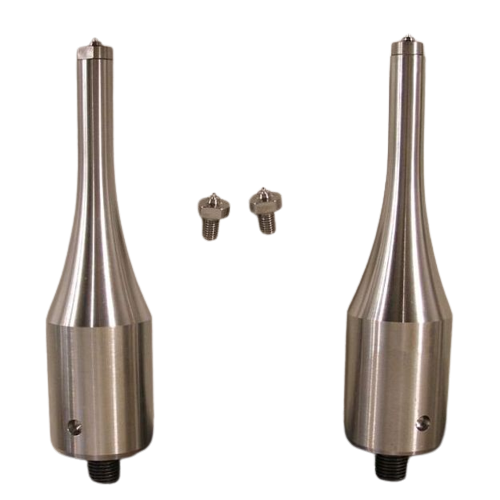
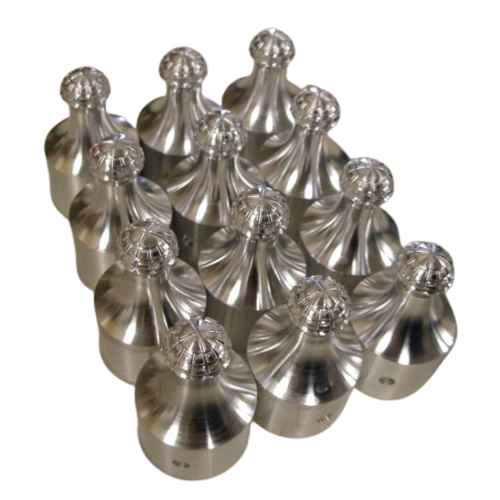
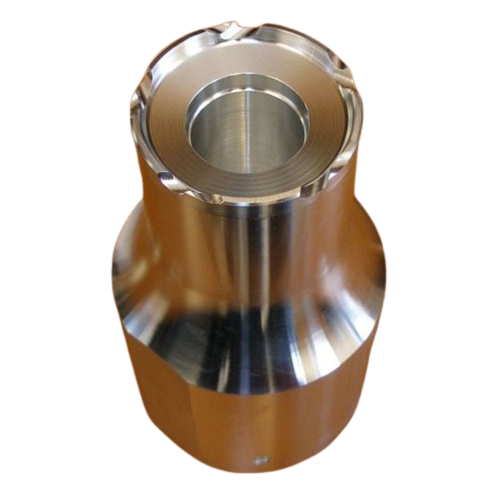

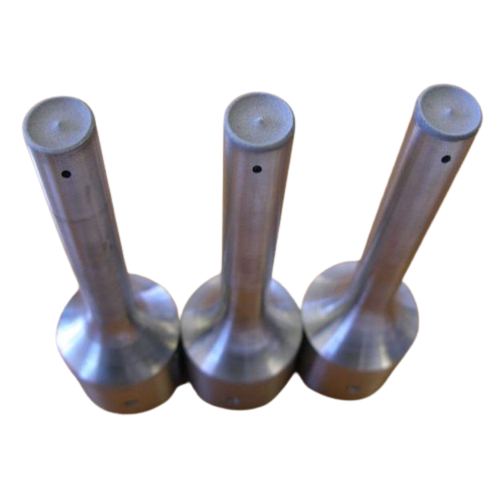
Square and Rect. Horns
Block, round to rectangular, slotted, contoured, bar horns and more.



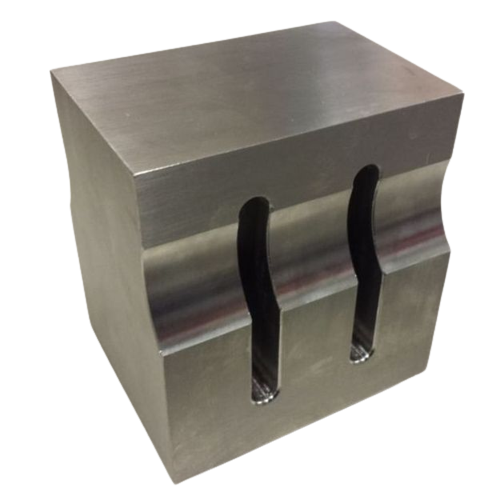
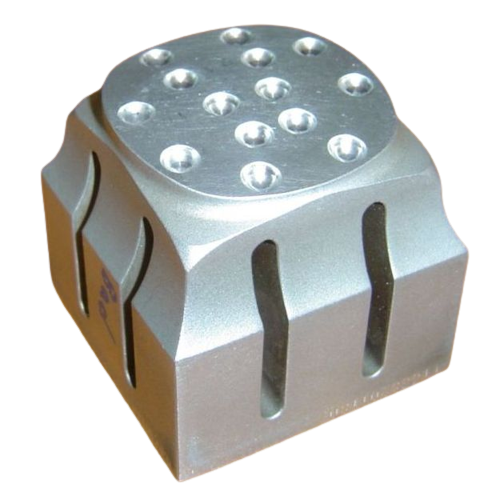
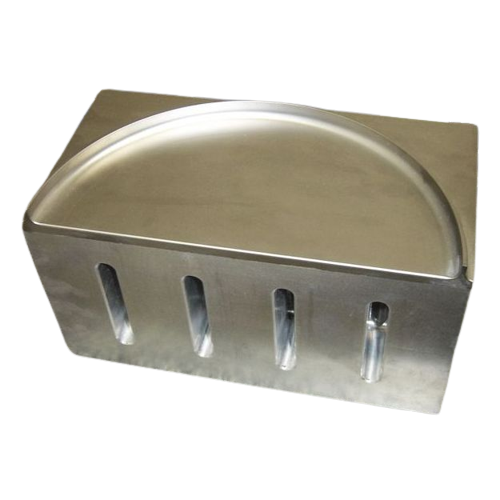


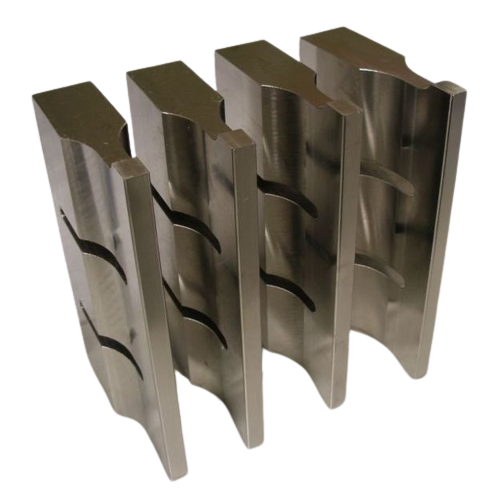
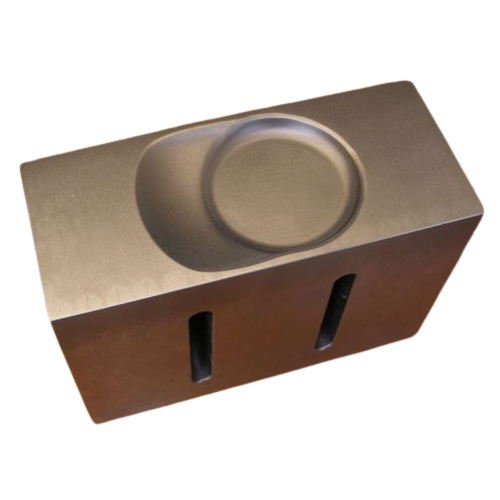
Composite Horns
Rectangular or Round, staking or welding points to contoured oriented daughter horns.


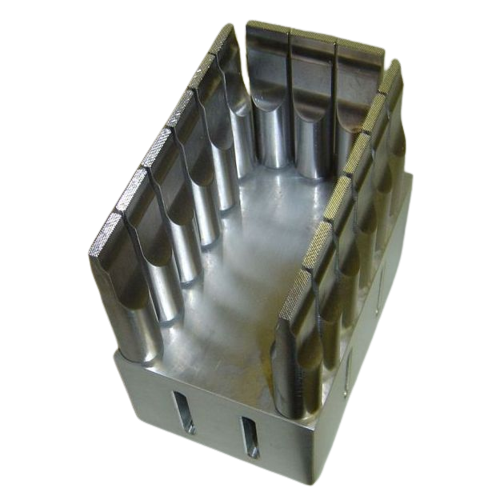

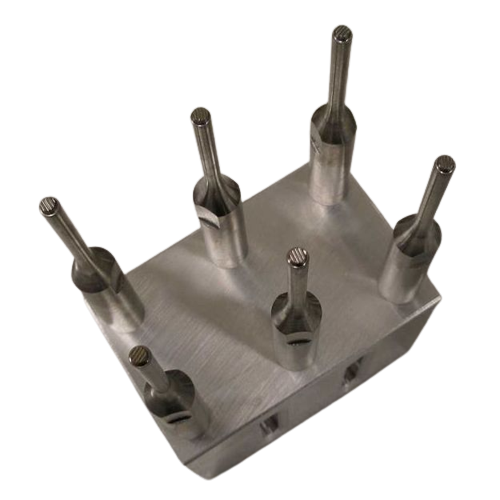





Custom Horns
Cutting horns, nodal plunger horns, tuned bolt horns, knurled horns, carbide spray coated, chrome plated, anodized and more.
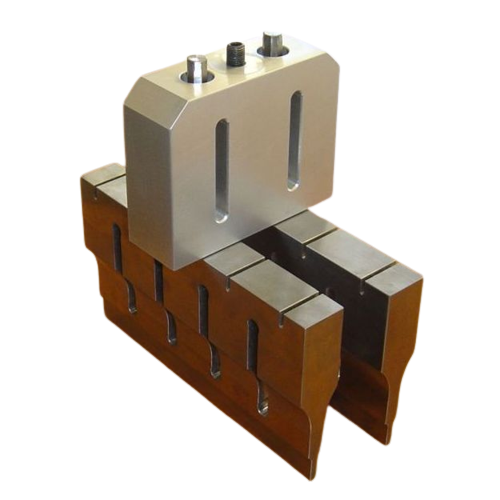


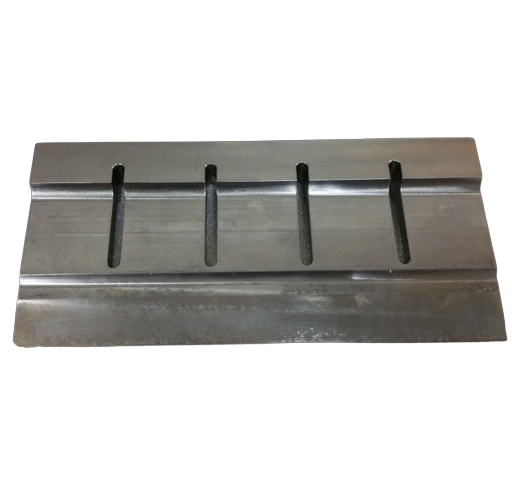



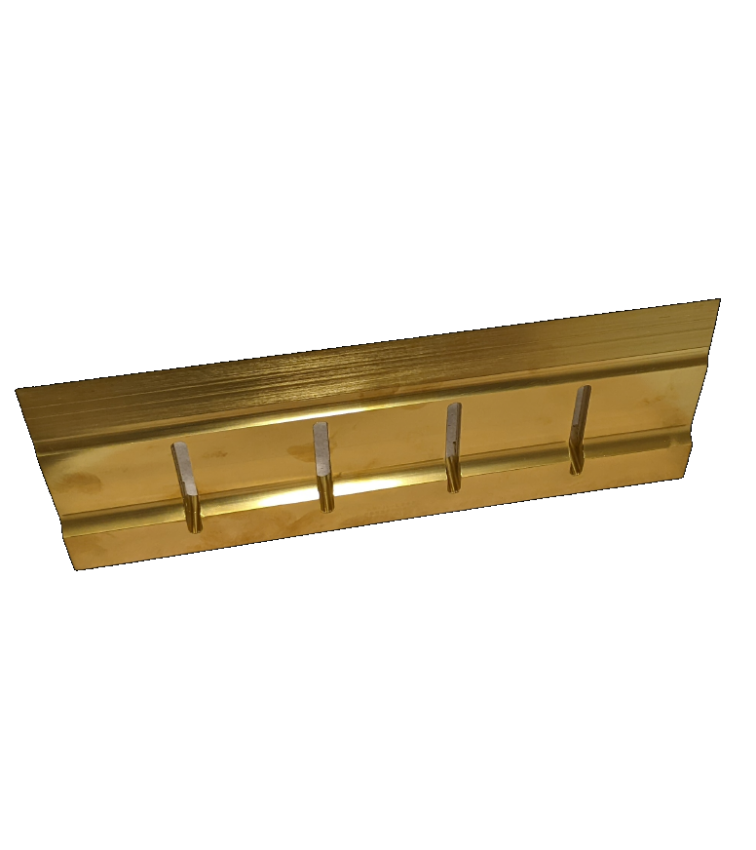

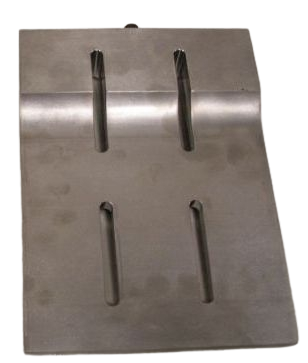
Fixtures
Contoured, clamped, plated, Velcro welding, and slide fixtures.


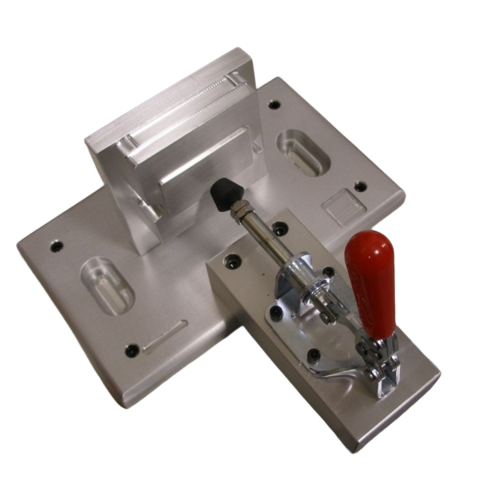


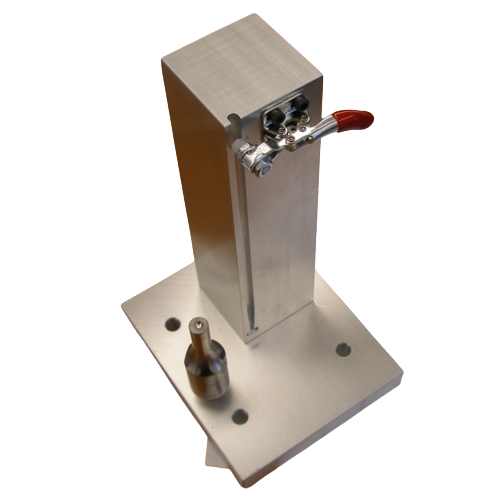




Spin Tooling
Examples of Spin welding tools.




Vibration Tooling
Examples of Vibration welding tools
